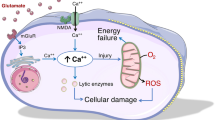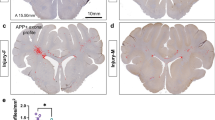Abstract
Introduction
To determine the impact of physiologic doses of hydrocortisone on neurologic outcome after traumatic brain injury (TBI).
Methods
We conducted a retrospective study in a neurocritical care unit at a university teaching hospital. We included 29 patients with moderate and severe TBI requiring vasoactive drugs to maintain adequate arterial blood pressure who received corticosteroid. Infected patients were excluded. Blood cortisol levels were measured before and 30 and 60 minutes after the administration of a high-dose corticotropin stimulation test (HDST). Patients received hydrocortisone replacement therapy (200–300 mg/day) and vasoactive drugs requirements were noted. Intracranial pressure was managed according to a predefined protocol.
Results
A total of 14 out of 29 (48%) of patients were classified as responders to hydrocortisone (stopping vasoactive drugs within 3 days of starting hydrocortisone). The Glasgow Outcome Score (GOS) was used to assess neurologic outcome at 6 months. A favorable outcome (GOS 4 and 5) was observed in 11 out of 14 (79%) of responders and five out of 15 (33%) of nonresponders (p=0.03). Of the responders, 12 out of 14 (85%) had a baseline cortisol below 414 nmol/L, and five out of 14 (36%) had primary adrenal insufficiency (AI) (primary AI: low baseline cortisol and poor response to the HDST). Age, severity of injury, and response to hydrocortisone were predictive of outcome in multiple logistic regression analysis.
Conclusions
Adrenal insufficiency is frequent after TBI, and hydrocortisone replacement therapy seems to be associated with a favorable neurologic outcome.
Similar content being viewed by others
References
Cohan P, Wang C, McArthur DL, et al. Acute secondary adrenal insufficiency after traumatic brain injury: a prospective study. Crit Care Med 2005;33(10):2358–2366.
Marik PE. Unraveling the mystery of adrenal failure in the critically ill. Crit Care Med 2004;32(2):596–597.
Menon DK. Cerebral protection in severe brain injury: physiological determinants of outcome and their optimisation. Br Med Bull 1999;55(1):226–258.
Annane D, Sebille V, Charpentier C, et al. Effect of treatment with low doses of hydrocortisone and fludrocortisone on mortality in patients with septic shock. JAMA 2002;288(7):862–871.
Cooper MS, Stewart PM. Corticosteroid insufficiency in acutely ill patients. N Engl J Med 2003;348(8):727–734.
Venkatesh B, Mortimer RH, Couchman B, Hall J. Evaluation of random plasma cortisol and the low dose corticotropin test as indicators of adrenal secretory capacity in critically ill patients: a prospective study. Anaesth Intensive Care 2005;33(2): 201–209.
Bernard F, Outtrim J, Menon DK, Matta BF. Incidence of adrenal insufficiency after severe traumatic brain injury varies according to definition used: clinical implications. Br J Anaesth 2006;96(1): 72–726.
Roberts I, Yates D, Sandercock P, et al. Effect of intravenous corticosteroids on death within 14 days in 10008 adults with clinically significant head injury (MRC CRASH trial): randomised placebo-controlled trial. Lancet 2004;364(9442):1321–1328.
Cronin L, Cook DJ, Carlet J, et al. Corticosteroid treatment for sepsis: a critical appraisal and meta-analysis of the literature. Crit Care Med 1995;23(8):1430–1439.
Grundy PL, Patel N, Harbuz MS, Lightman SL, Sharples PM. Glucocorticoids modulate the NGF mRNA response in the rat hippocampus after traumatic brain injury. Brain Res 2001;892(2): 386–390.
Glezer I, Rivest S. Glucocorticoids: protectors of the brain during innate immune responses. Neuroscientist 2004;10(6):538–552.
Rhodes JK. Actions of glucocorticoids and related molecules after traumatic brain injury. Curr Opin Crit Care 2003;9(2):86–91.
Abraham IM, Harkany T, Horvath KM, Luiten PG. Action of glucocorticoids on survival of nerve cells: promoting neurodegeneration or neuroprotection? J Neuroendocrinol 2001;13(9):749–760.
Author information
Authors and Affiliations
Corresponding author
Rights and permissions
About this article
Cite this article
Bernard, F., Outtrim, J., Lynch, A.G. et al. Hemodynamic steroid responsiveness is predictive of neurological outcome after traumatic brain injury. Neurocrit Care 5, 176–179 (2006). https://doi.org/10.1385/NCC:5:3:176
Issue Date:
DOI: https://doi.org/10.1385/NCC:5:3:176




